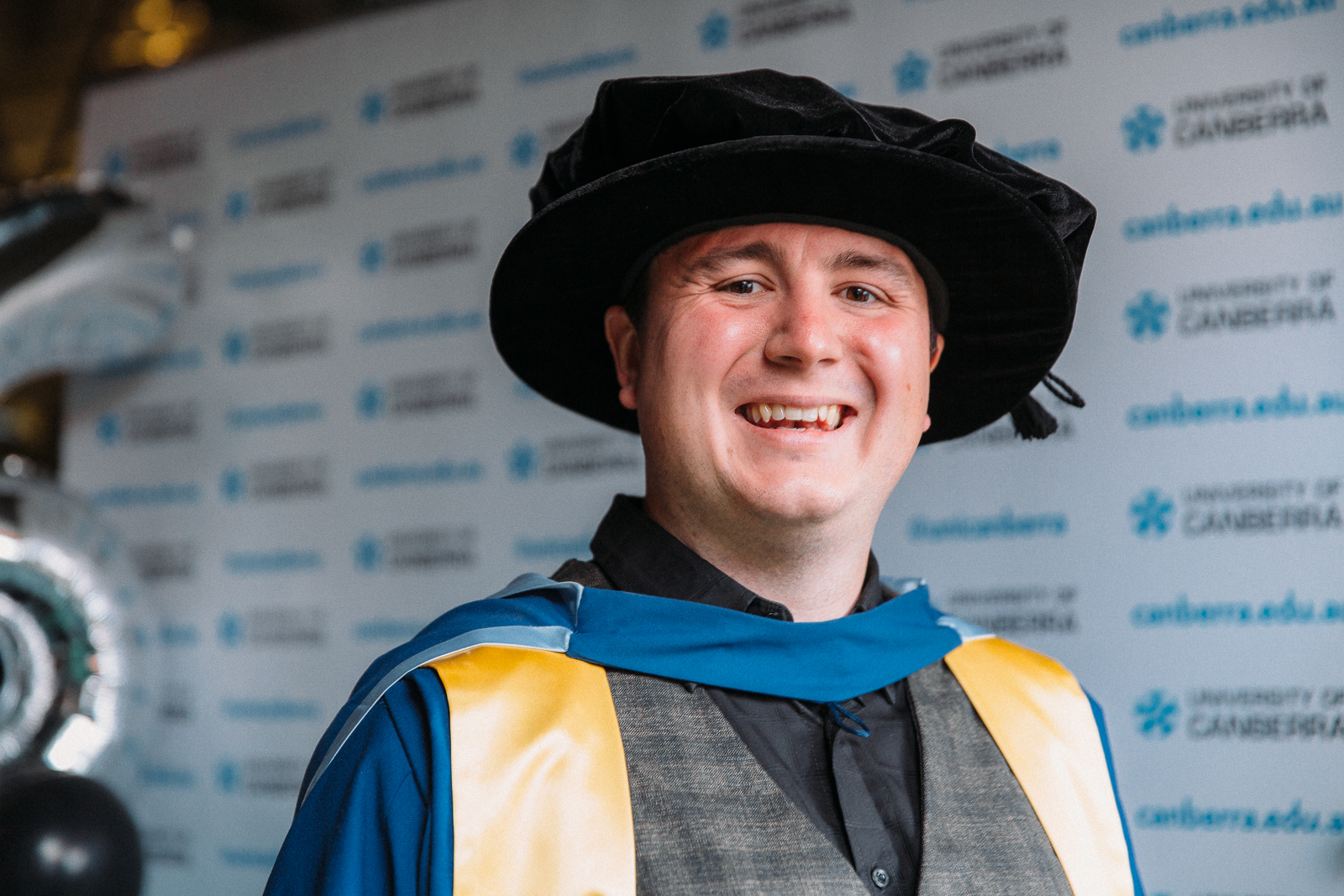Marcus Butler
29 August 2017: A doctoral thesis on people’s engagement with the political process today earned Max Halupka a doctorate from the University of Canberra in 2016, now it’s been recognised by the American Political Science Association.
The American Political Science Association is the largest political science organisation in the world with 12,000 members in 80 countries.
Its annual awards recognise academic contributions to the field and Dr Halupka’s thesis Contemporary Political Participation: exploring the relationship between technology and politics within a period of late-modernity was awarded an honourable mention.
Dr Halupka said his thesis by publication, a series of four published articles connected by an analytical narrative, had a tough run because the format is unusual in the American system.
“I wasn’t brimming with confidence heading into the awards,” Dr Halupka said. “My thesis did earn me a doctorate, but because it wasn’t a traditional manuscript it presented the judges with a challenge.
“A thesis by publication is shorter than the usual entries in these competitions, so the honourable mention, or second place, came as a pleasant surprise.”
The other two finalists were from the United States and United Kingdom, with the UK entry winning first prize in a unanimous decision.
Dr Halupka said the feedback he received about his work was fantastic, praising his innovative approach to the topic.
“I’m a conceptual theorist and my work pushes boundaries. But I was thrilled to hear that my thesis went beyond the judges expectations as a doctoral work.
“I think having the space to be a free thinker and develop my theory at the University of Canberra’s Institute for Governance and Policy Analysis (IGPA) helped me to this point.”
Clicktivism currently features largely in Dr Halupka’s work, where he is focusing on concepts around whether this new form of political engagement has real legitimacy.
“I can certainly say that people are engaged in clicktivism; liking and sharing content on social media and online. But the question remains is clicktivism’s legitimacy as a method of engagement tied to how effective it is, or its popular perception or even public use.
“Just because everyone adds a certain filter to their social media profile does that impact the issue or policy makers? Is the act of making a statement or protest like this any different from the large scale actions like ‘Occupy Wall Street’ or ‘Occupy Martin Place’ as a local example?” he said.



